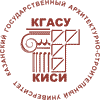About the authors
| First name, Middle name, Last name, Scientific degree, Scientific rank, Current position. Full and brief name of the organization, The organization address. | Rifat I. Fayziev, head of the laboratory of Stroyengineering LLC, Kazan, Russian Federation E-mail: This e-mail address is being protected from spambots. You need JavaScript enabled to view it Denis S. Smirnov, associate professor, candidate of technical sciences, Kazan State University of Architecture and Engineering, Kazan, Russian Federation E-mail: This e-mail address is being protected from spambots. You need JavaScript enabled to view it |
| Title of the article | Evaluation of the possibility of using metallurgical waste in road surfacing materials |
| Abstract. | Taking into account the annually increasing transport loads, the use of more durable asphalt concretes becomes relevant. It is possible to increase the ability of asphalt concrete to withstand various loads by rational selection of the granulometric composition of the mixture, introduction of additives into bitumen or adding them directly into the asphalt concrete mixture. At the same time, there is known experience in using various industrial wastes as additives into asphalt concrete mixtures in order to increase their physical and mechanical properties. This allows us to additionally solve the environmental problem, since recently, taking into account the growing industrial production, the amount of harmful emissions and industrial waste has increased. The objective of the work is to study the effect of mineral powder from metallurgical waste, namely ground granulated blast furnace slag, on the properties of asphalt concrete mixtures of the SP-16Э and SMA-16 brands. To achieve the objective, the following tasks are solved: the composition of asphalt concrete mixtures is designed; the granulometric composition of mineral powder based on ground granulated blast furnace slag is determined; samples of asphalt concrete mixtures are prepared and their performance properties are studied. Results. The work presents the test results of asphalt concrete mixtures of grades SP-16Э and SMA-16 using mineral powder MP-2 as part of the composition, as well as ground granulated blast furnace slag. Conclusions. It has been established that the use of ground granulated blast furnace slag as a mineral powder helps to reduce the water resistance of asphalt concrete mixtures by up to 25%, as well as to reduce the resistance of the mixtures to rutting. If the rut depth indicator for asphalt concrete mixtures of grades SP-16Э and SMA-16 on mineral powder MP-2 was 1.8 and 1.1 mm, then with the use of ground blast furnace slag as a mineral powder this indicator became 5.9 and 6.1 mm respectively, which does not meet federal standard requirements and its use in blast furnace slag mixtures is questionable. |
| Keywords. | asphalt concrete mixture, mineral powder, ground blast furnace slag, metallurgical waste, industrial waste, durability |
| For citations: | Fayziev R.I., Smirnov D.S. Evaluation of the possibility of using metallurgical waste in road surfacing materials // News of KSUAE, 2024, № 3(69), p. 68-76, DOI: 10.48612/NewsKSUAE/69.7, EDN: GCLWBS |














